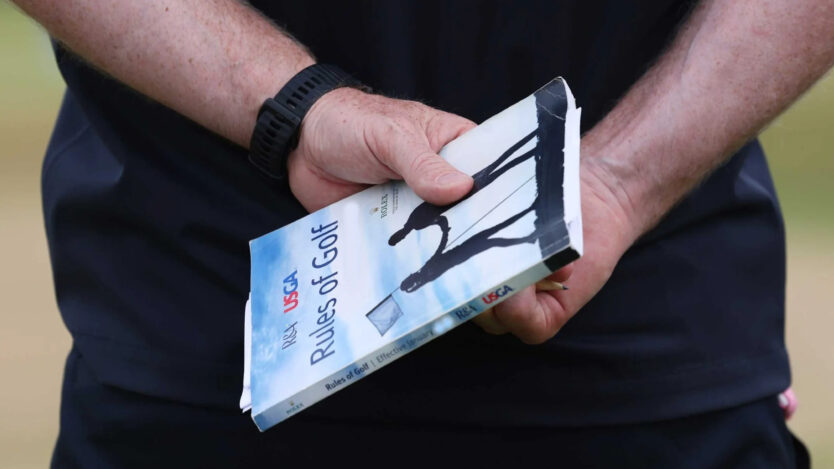It’s one of the most difficult jobs a committee faces – trying to mediate a rules dispute between players. But help is at hand in the Rules of Golf
This article is part of GCMA Insights – topical content for golf industry professionals, discussing the things that matter to those who work in golf clubs.
Rules disputes can arouse passions and they can cause unpleasant scenes at the club. No one ever likes to feel like they’re integrity is being brought into question.
Sometimes, players can’t sort these problems out themselves and they are going to end up at your door as club manager, with the committee, or with your club professional.
Most of the time, you’re not going to have witnessed the incident and you’re going to have to go on what the players, and those around them say.
In the rules, this is known as ‘resolving questions of fact’ and there is a section in the committee procedures, found in the Official Guide to the Rules of Golf, to help guide the way.
Here’s what to do:
Consider the circumstances
Resolution of doubt involving questions of fact should be made “based on all the relevant circumstances and information available at the time”. When you can’t determine those facts satisfactorily enough, you should treat the situation in a way “that is reasonable, fair, and consistent with how similar situations are treated under the Rules”.
WHY JOIN THE GCMA?
Membership of the GCMA unlocks a network of like-minded professionals, provides you with support in your professional and personal development, and provides you with a multitude of benefits. Whether that’s the tools that will help you to excel in your profession, or a wide range of services to support your wellbeing, signing up to the GCMA is joining a community.
Consider the testimony of players
Each situation should be treated on its own merits and depends on the circumstances of each case, says the Committee Procedures. Where it becomes the word of one player against another, and the evidence at your disposal favours neither, “the benefit of the doubt should be given to the player who made the stroke or whose score is involved”.
Use reasonable judgement
This applies when a player has been required to determine a “spot, point, line, edge, area or location under the Rules”. Did they use reasonable judgement when making that decision?
If you find they did, the decision will be accepted – “even if, after the stroke is made, the determination is shown to be wrong”.
Try and resolve it as soon as possible
If you have a referee taking charge, they may be limited to looking at the evidence that’s available at the time. But committees can further review any such ruling, “if additional evidence becomes available”. The key, though, is that any questions of fact be resolved as soon as possible.
This article is part of GCMA Insights – topical content for golf industry professionals, discussing the things that matter to those who work in golf clubs.
Get involved in the debate. To join the GCMA, click here, or to organise a call with a member of the GCMA team, just complete this form and we’ll be in touch!
Enquiries
"*" indicates required fields



